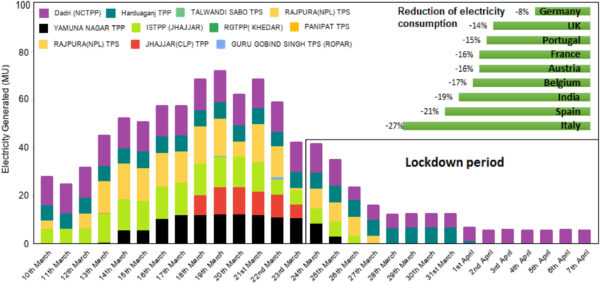Could climate benefit from Trump tariffs?
In this era of Trump madness, a delicious irony is unfolding that would make even the most seasoned satirist blush. Just as Greta Thunberg pivots from climate activism to anti-capitalism crusading, she may have found an unlikely ally in Donald Trump — though neither has a clue they are helping each other.
The convergence nobody saw coming.
A month into the Trump Administration, the debate on the global economy has reached a surreal crossroads. For decades, the economic “degrowth” movement, championed by Naomi Klein and Jason Hickels, has argued that capitalism itself is the climate crisis — and that a US-imposed post-World War II economy that unleashed global free markets was at fault. Now, they have an unexpected ally in Donald Trump, who seems intent on turning that new order on its head with a radical tariff agenda that could crash the very system that Thunberg wants to “overthrow.” You can’t make this stuff up.
The COVID climate lesson
Remember the pandemic’s silver lining? As human activity ground to a halt, our planet enjoyed a moment to catch its breath. The lockdowns delivered unprecedented drops in carbon emissions — a real-world experiment in what happens when global commerce takes an extended holiday.

Radical energy drawdown during COVID. Source: Heliyon
Trump’s tariff time machine
Much to Thunberg’s delight, Trump’s tariff proposals could make the economic downturn during COVID feel like a picnic. They eerily echo the Hawley-Smoot Tariff Act of 1930, which caused US GDP to plunge 46%, taking carbon emissions down with it. While nobody’s cheering for another Great Depression, the historical parallel is striking: economic contraction equals carbon reduction. That’s a disaster for humans but great for the planet.
While nobody’s cheering for another Great Depression, the historical parallel is striking: economic contraction equals carbon reduction.
Dark memories of the Great Depression meant that for decades, even considering tariffs would get you blackballed by the Council on Foreign Relations and disinvited by the World Economic Forum. That is one reason Trump is relishing using a wrecking ball on what is known in policy circles as the “liberal economic order,” a series of international organizations and agreements to promote global cooperation that were put into place after World War II. The United States, until Trump, championed that system and promoted cooperation on issues including security, trade, health, and monetary policy.
Key to making this all work was unfettered free trade. Tariffs were to be abolished, not imposed.
Make goods, not tariffs
This system has brought 75 years of relative peace and dramatic economic growth. But also record global atmospheric temperatures. NASA reports that we’re 1.28 C above the 1951–1980 baseline.
Much of that today comes from China, which accounts for a whopping 35% of global emissions and has displaced America, whose carbon footprint per GDP has actually decreased by 55% since 1990. During the same period, China’s CO2 emissions increased by fivefold.
This vast difference in carbon footprints has created a curious alliance between Democrats like Rhode Island Senator Sheldon Whitehouse and Republicans like Louisiana Senator Bill Cassidy, who are in violent agreement on one thing: The China-US trade imbalance needs to change. However, whereas Trump’s America-first advisors think China is “waging economic war,” Whitehouse is focused on climate and is seeking bipartisan legislation for a U.S. carbon border fee (tariff) because China is “getting away with polluting for free.”
Local production, shorter supply chains, and reduced consumption will become the norm — not because of climate activism but because of economic nationalism.
Either way, both sides see tariffs as their weapon of choice, which might accomplish what decades of climate summits could not: force a fundamental restructuring of global trade patterns that inadvertently reduces carbon emissions.
What a strange trip it is
What is certain is that the era of unfettered globalization is ending, and perhaps with it, our addiction to carbon-intensive global supply chains and cheap imported goods. Local production, shorter supply chains, and reduced consumption will become the norm—not because of climate activism but because of economic nationalism.
In this bizarre new world order, Trump’s tariffs could achieve what Thunberg’s climate activism couldn’t — and roll back decades of trade policy that outsourced manufacturing to cheap labor and coal-powered developing economies like China.
It remains to be seen whether this convergence of nationalist and environmental concerns leads to meaningful climate action. But one thing is certain: the global economic order that gave us unprecedented prosperity and a warming planet is being dismantled, one tariff at a time.
Featured photo: Donald Trump (credit: Gage Skidmore), Greta Thunberg (credit: Anders Hellberg)


